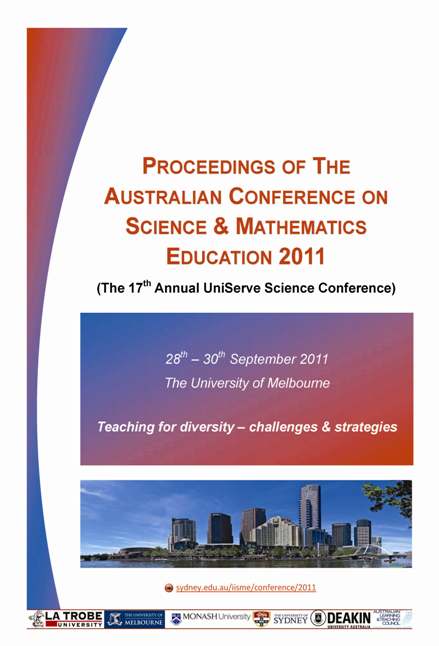Feeding forward on timely feedback?
Abstract
Meaningful feedback is known to be an essential part of classroom communication with the potential to improve learning, leading to a higher achievement of skill and cognition by students (Black and Wiliam 1998; Sadler 1998; Hounsell 2003; Nicol and Macfarlane 2006) and yet difficult to construct (Biggs 1999; Nicol and Macfarlane 2006), time consuming to provide (Lea and Street 1998; Mutch 2003) and somewhat wasted (Orrell 2006) especially when students pay little to no attention to it or when it acts as a post script to learning. Although several studies have found evidence that feedback can improve learning (Black and Wiliam 1998; Sadler 1998; Hounsell 2003), there are also studies which, to the contrary, find no evidence (Smith and King 2004) and perhaps even detrimental (Black and Wiliam 1998) triggering students to regress to less desirable behaviour (Brookhart 2001; Smith and King 2004). The literature suggests that a critical factor in feedback significantly improving learning and performance is the type and timing of feedback (Gibbs and Simpson 2004; Glover and Brown 2006), especially if students are provided with the opportunity to redraft the work or use the feedback in some further stage (Rust 2002; Fritz 2000). This mixed method study done in a large metropolitan university, over a ten year period (2000-2010), in small and large class room settings (80-800 students) found that students made small, yet significant performance gains only when they received timely, well constructed feedback upon which they acted. There were no significant performance gains when students received timely, well constructed feedback on which they did not act. This study challenges academic expectations of the size of the anticipated learning and performance gain that feedback provides to students in the sciences.Downloads
Published
2011-08-10
Issue
Section
Abstracts
